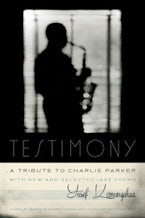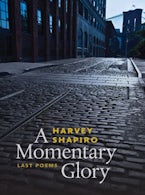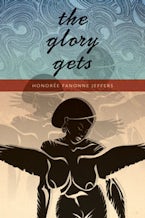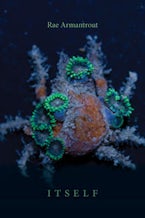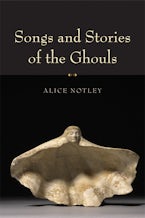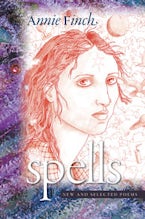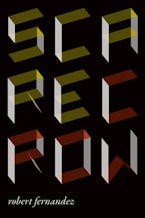- Home
- Wesleyan Poetry Series
- poetry
- Endarkenment
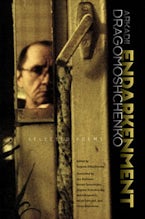
Endarkenment
Selected Poems
Edited by Eugene Ostashevsky
Translated by Genya Turovskaya, Bela Shayevich , Jacob Edmond
Series: Wesleyan Poetry Series
Sales Date: 2014-01-03
Major collection by a contemporary Russian avant-garde master
The poet Arkadii Dragomoshchenko made his debut in underground magazines in the late Soviet period, and developed an elliptic, figural style with affinities to Moscow metarealism, although he lived in what was then Leningrad. Endarkenment brings together revisions of selected translations by Lyn Hejinian and Elena Balashova from his previous American titles, long out of print, with translations of new work carried out by Genya Turovskaya, Bela Shayevich, Jacob Edmond, and Eugene Ostashevsky. This chronological arrangement of Dragomoshchenko's writing represents the heights of his imaginative poetry and fragmentary lyricism from perestroika to the time of his death. His language—although "perpetually incomplete" and shifting in meaning—remains fresh and transformative, exhibiting its roots in Russian Modernism and its openness to the poet's Language School contemporaries in the United States. The collection is a crucial English introduction to Dragomoshchenko's work. It is also bilingual, with Russian texts that are otherwise hard to obtain. It also includes a foreword by Lyn Hejinian, an essay on how the poetry reads in Russian, a biography, and a list of publications. Check for the online reader's companion at endarkenment.site.wesleyan.edu.
Foreword by Lyn Hejinian
« , . . . » ( . ) / "I don't believe that it ended like that . . ." (to Alexey M. Parshchikov) – Trans. Genya Turovskaya
« ?» ( . ) / "Is the fault really yours?" (to Trofim K. Dragomoshchenko) – Trans. Genya Turovskaya
« » / FROM ON THE SHORES OF THE EXPELLED RIVER
« » / "Let us halt" – Trans. Bela Shayevich and Eugene Ostashevsky
/ To a Statesman – Trans. Genya Turovskaya
, / Dreams Photographers Appear To – Trans. Bela Shayevich
/ The Weakening of an Indication – Trans. Genya Turovskaya
« , . . . » / "Not dream, but the flowering . . ." – Trans. Genya Turovskaya
/ Six Hours to Waking If You Don't Sleep – Trans. Lyn Hejinian
/ For Many Reasons – Trans. Eugene Ostashevsky
/ Counting – Trans. Eugene Ostashevsky
/ An Evening – Trans. Eugene Ostashevsky
«A . . . » / "And it's not like I can run off somewhere . . ." – Trans. Eugene Ostashevsky
«He . . . » (Akseli Kajanto) / "We shouldn't especially trust poets . . ." (to Akseli Kajanto) – Trans. Eugene Ostashevsky
« » / FROM UNDER SUSPICION
« , . . . » / "Lion-headed, bronze-winged . . ." – Trans. Genya Turovskaya
« . . . » / "Fury shadowed their faces . . ." – Trans. Genya Turovskaya
/ Paper Dreams – Trans. Genya Turovskaya
« . . . » / "They dreamt of nothing . . ." – Trans. Bela Shayevich
« . . . » / "The tree's wintry empire . . ." – Trans. Bela Shayevich
/ Reflections in a Golden Eye – Trans. Genya Turovskaya
« . . . » / "Everything was in decline . . ." – Trans. Jacob Edmond
« . . . » / " . . . there they go, writing poems" – Trans. Genya Turovskaya
« » / FROM THE CORRESPONDING SKY
« . . . » / "In my declining years I said to the slave . . ." – Trans. Elena Balashova and Lyn Hejinian
/ Nasturtium as Reality – Trans. Elena Balashova and Lyn Hejinian
Arkadii Trofimovich Dragomoshchenko: A Brief Biography and Bibliography, by Eugene Ostashevsky
Dragomoshchenko's Russian, by Eugene Ostashevsky
Notes
ARKADII DRAGOMOSHCHENKO (1946–2012) was a Russian experimental poet, essayist, and translator. The winner of innumerable prizes both Russian and international, he published and translated broadly, introducing Russian readers to American poetry of the second half of the twentieth century. EUGENE OSTASHEVSKY, a poet and translator, is the author of two books of poetry, including The Life and Opinions of DJ Spinoza.
"Dragomoshchenko's lyric seems to me to have no real American counterparts; its mode recalls Rimbaud and Trakl, Celan and possibly Aimé Cesaire... If the Language poets' refusal of the authoritative lyric self is shared by Dragomoshchenko, his poetry is much more oriented towards imaginative transformation... For Dragomoshchenko, language is not the always already used and appropriated, the pre-formed and pre-fixed that American poets feel they must wrestle with. On the contrary, Dragomoshchenko insists that 'language cannot be appropriated because it is perpetually incomplete'... and, in an aphorism reminiscent of Rimbaud's 'Je est un autre,' 'poetry is always somewhere else'."
~Marjorie Perloff, Sulfur 29
""Even in translation one can make out the fleet, limpid finesse and determination of Dragomoshchenko's sprint from one end of a line to another[...] He celebrates the incantatory traffic of signifiers between speakers and, as in the case of this captivating volume, between languages as well.""
~Andre Furlani, Matrix Magazine
""Mr. Dragomoshchenko began publishing in the waning years of the Soviet regime. Born in East Germany, he grew up in the Ukraine, a place we now know is an intersection of languages, customs, and cultures. Perhaps his post-structuralist wordplay was a natural and fitting result.""
~Iconoclast
""The long-awaited Endarkenment collects poems written over a span of thirty years, most of which haven't been translated into English previously. one can't help but want more. Such a desire seems appropriate for this poet, who is elusive and present at the same time, always able to offer possibility.""
~Samuel Amadon, Boston Review
""Dragomoshchenko's lyric seems to me to have no real American counterparts; its mode recalls Rimbaud and Trakl, Celan and possibly Aimé Cesaire If the Language poets' refusal of the authoritative lyric self is shared by Dragomoshchenko, his poetry is much more oriented towards imaginative transformation For Dragomoshchenko, language is not the always already used and appropriated, the pre-formed and pre-fixed that American poets feel they must wrestle with. On the contrary, Dragomoshchenko insists that 'language cannot be appropriated because it is perpetually incomplete'... and, in an aphorism reminiscent of Rimbaud's 'Je est un autre,' 'poetry is always somewhere else'.""
~Marjorie Perloff, Sulfur 29
""Russian experimental poet Dragomoshchenko (1946–2012) wrote in an elliptical, self-referential style that was generally at odds with the more established formal poetry of his peers. Luckily, he formed lasting relationships with like-minded American poets, such as Lyn Hejinian, who translated and championed his work abroad. Here, Ostashevsky assembles an essential volume of previously un-translated poems—with interpretations by six translators placed alongside their Russian originals—spanning over three decades of innovation. In tackling larger themes of mortality and temporality, Dragomoshchenko wrestles with the capability of language itself. What arises is a poetics that, in the vein of Wallace Stevens, explores ambiguity and does not reveal itself so much as dance at the edges of meaning, residing 'in the location between the glimmering and what lies below.'""
~Publishers Weekly
"Arkadii Dragomoshchenko is one of the great poets of the last fifty years, a poet who has transformed Russian poetics by exploring a meditative and introspective approach to both rhythm and content. The constantly metamorphosing detail is his constant companion through the often harsh times of the Cold War and what came after. This superb selection reads like one long, wild, sublime poem. It is a small opening onto the vast treasure of this poet's imagination."
~Charles Bernstein, author of Recalculating
"Dragomoshchenko's lyric seems to me to have no real American counterparts; its mode recalls Rimbaud and Trakl, Celan and possibly Aimé Cesaire If the Language poets' refusal of the authoritative lyric self is shared by Dragomoshchenko, his poetry is much more oriented towards imaginative transformation For Dragomoshchenko, language is not the always already used and appropriated, the pre-formed and pre-fixed that American poets feel they must wrestle with. On the contrary, Dragomoshchenko insists that 'language cannot be appropriated because it is perpetually incomplete'... and, in an aphorism reminiscent of Rimbaud's 'Je est un autre,' 'poetry is always somewhere else'.""
~Marjorie Perloff, Sulfur 29
"Dragomoshchenko's innovative and deeply metaphoric vision makes him one of Russia's most subtle and experimentally daring authors. To translate his poems is a difficult and adventurous enterprise which has been beautifully accomplished in this quintessential book.""
~Mikhail N. Epstein, Samuel Candler Dobbs Professor of Cultural Theory and Russian Literature, Emory University

